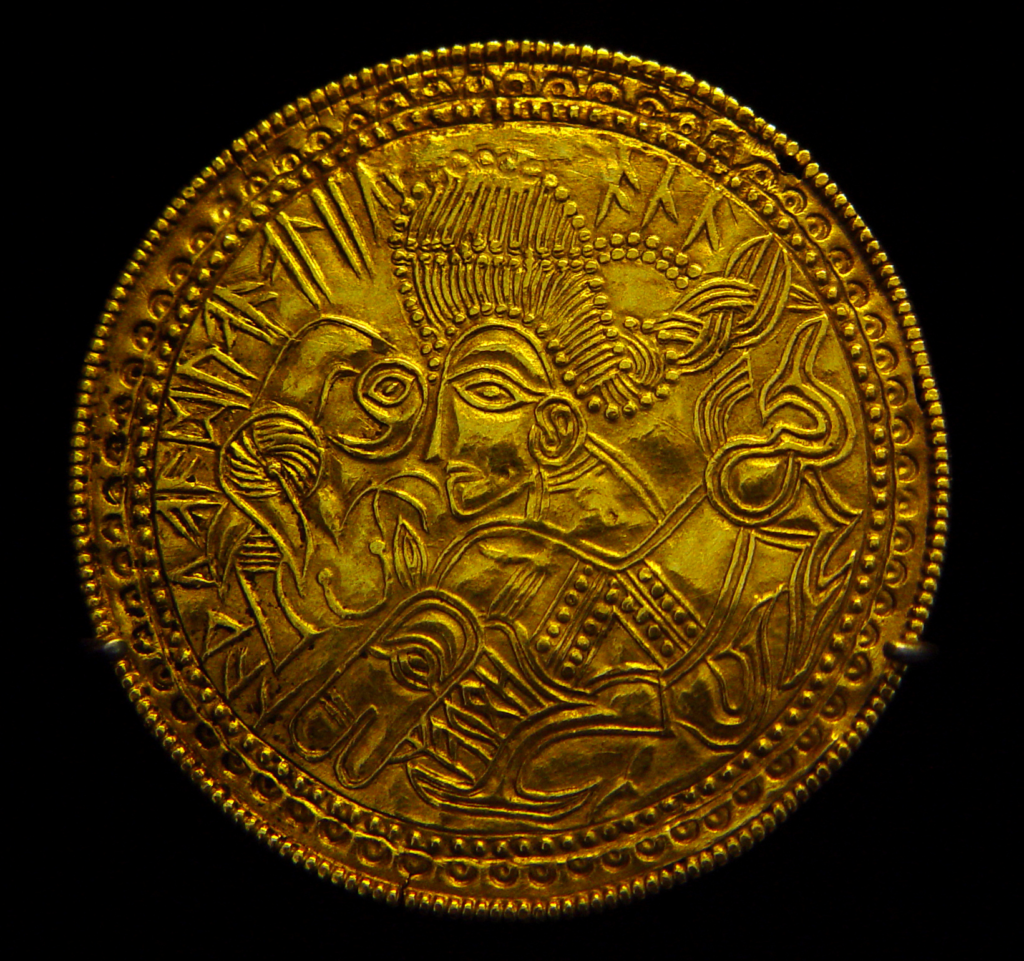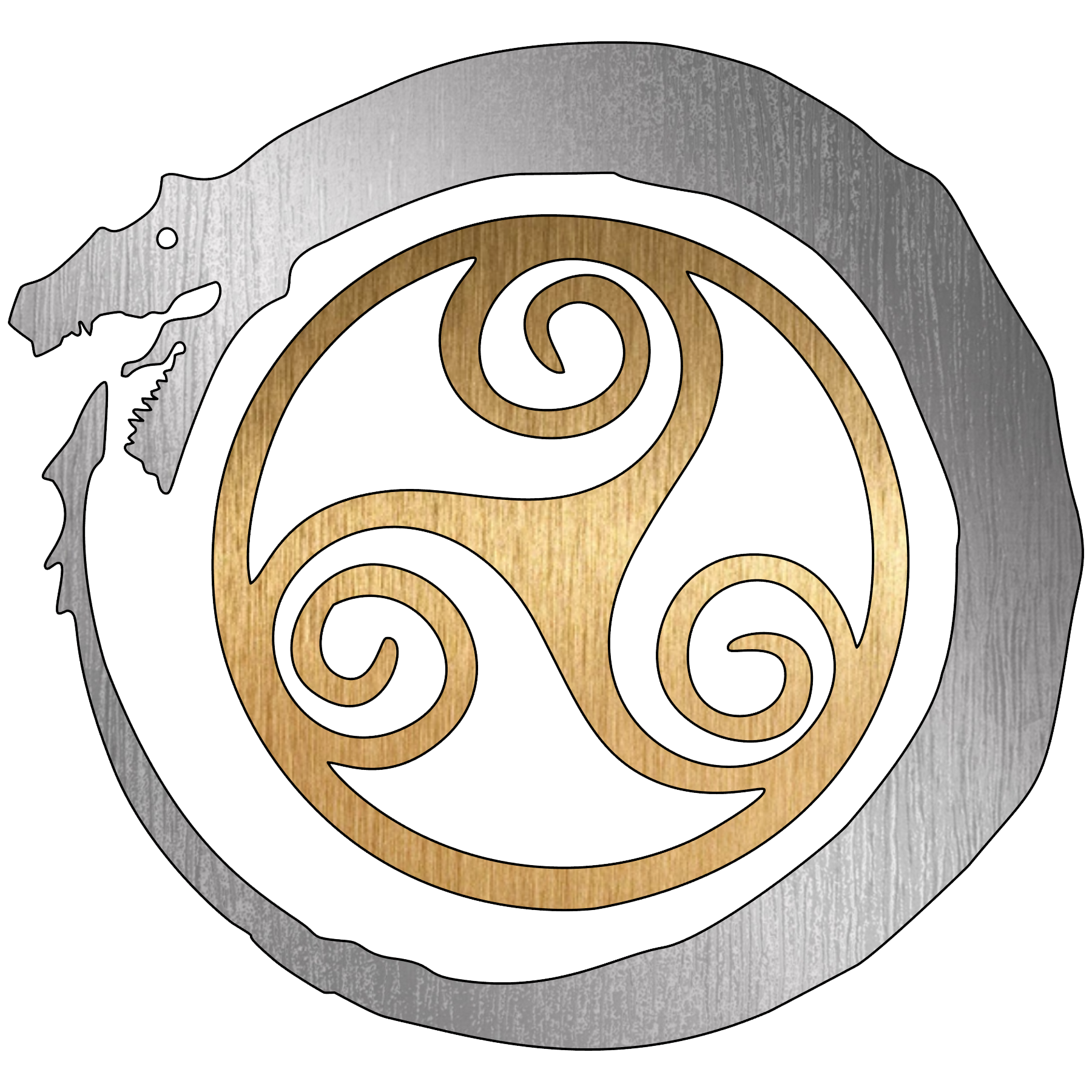The Germanic bracteate from Funen, Denmark is a fascinating artifact from the Migration Period. It’s a gold bracteate, which is a type of jewelry with a single face. This particular piece features a depiction of a bird, a horse, and a stylized head wearing a Suebian knot. These elements are sometimes theorized to represent the Germanic god Wōden, who would later become known as Odin in Norse mythology. The bird and horse are thought to represent Hugin or Munin and Sleipnir, respectively, who are significant figures in Germanic and Norse mythology.
The bracteate also includes a runic inscription. The inscription is read as “houaz laþu aaduaaaliia a–” or alternatively “houaz / laþu aa duaaalii (a) / al (u)”. According to the display at the National Museum of Denmark, “houaz” is interpreted as “The High One”, a name of Odin.
This bracteate is about the size of a large coin and is a very detailed photograph of an object from around the 5th century. It represents a number of concepts that may be unfamiliar to many but are rich in information about the culture and beliefs of the time. It’s housed at the National Museum of Denmark and is considered one of the finest bracteates from the time.


No responses yet